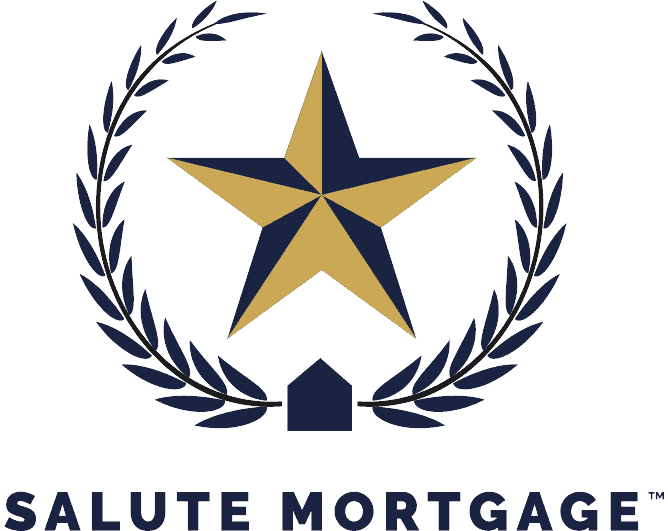Last updated: September 2025
Quick Answer
A DSCR loan—sometimes called a cash-flow mortgage—lets real estate investors qualify using the rental income from the property. Approval is based on whether the property earns enough to cover its expenses.
What is a DSCR loan?
A DSCR loan is a Debt-Service Coverage Ratio loan, designed specifically for real estate investors. Instead of reviewing your personal income, lenders look at the property’s cash flow. Specifically, vendors look at how much the rental income covers the monthly loan payment.
This makes DSCR loans ideal if you:
- Own multiple properties
- Have inconsistent or self-employed income
- Want to qualify through your LLC or business
- Prefer not to submit W-2s or tax returns
With a DSCR mortgage, the focus shifts from your job or income to the performance of the property itself.
Let’s Build Your Path to Homeownership
At Salute Mortgage, we combine veteran-led guidance with clear, tactical support—whether you're buying your first home, refinancing, or planning for long-term equity.
How does the DSCR ratio work?
DSCR stands for Debt-Service Coverage Ratio. It measures how well a property’s income covers its monthly expenses.
The formula:
DSCR = Gross Monthly Rent ÷ Monthly Debt Payment (PITI)
Where:
- Gross Monthly Rent is the lease or market rent
- Debt Payment (PITI) includes Principal, Interest, Taxes, and Insurance
Example:
- Rent: $2,000/month
- PITI: $1,600/month
- DSCR = 2000 ÷ 1600 = 1.25
A DSCR of 1.25 means the property earns 25% more than it costs to operate. This is often the minimum threshold for approval with many DSCR lenders.
Why real estate investors use DSCR loans
DSCR loans are tailored for real estate investors who prioritize:
- Speed: Faster closing timelines due to minimal documentation
- Flexibility: No income verification, tax transcripts, or employment checks
- Entity borrowing: Ability to buy under an LLC or business name
- Portfolio growth: Less restrictive limits on the number of properties owned
Unlike conventional loans, DSCR mortgages don’t penalize you for being self-employed or owning multiple rentals.
What DSCR lenders look at
Instead of your paycheck or credit card statements, lenders base the loan decision on:
- The property’s monthly rental income
- The projected PITI payment
- The DSCR ratio (often 1.00 or higher)
- Property condition and appraisal value
- Credit score (minimums often start at 660)
- Loan-to-value (LTV) (commonly 70–80% max)
No employment history, pay stubs, or tax returns are required.
Here’s a quick comparison:
| Feature | DSCR Loan | Traditional Mortgage |
|---|---|---|
| Income docs required | No | Yes (W-2s, tax returns) |
| Qualification basis | Property cash flow | Personal income & Debt-to-Income (DTI) |
| Use for LLCs | Yes | Rare |
| Number of properties allowed | Typically unlimited | Often capped at 10 |
| Time to close | Faster (2–4 weeks) | Slower (4–6+ weeks) |
What properties qualify for DSCR loans?
DSCR loans are available for a wide range of investment property types, including:
- Single-family rentals
- Duplexes, triplexes, and fourplexes
- Short-term rentals (Airbnb/VRBO)
- Long-term lease properties
- Condos (subject to investor caps and HOA rules)
The property must be non-owner-occupied. DSCR loans are not for your primary residence or vacation home.
What’s the minimum DSCR to qualify?
Most lenders require a minimum DSCR of 1.00, meaning the property must at least break even on cash flow. However:
- 1.25 or higher is ideal for approval
- A DSCR below 1.00 may still qualify, but with higher rates or a larger down payment
- Some lenders offer interest-only DSCR loans to help improve cash flow ratios
If your property doesn’t meet the ratio using actual rent, you may still qualify using market rents from the appraiser’s rental schedule.
Pros and cons of DSCR loans
Here’s a clear breakdown:
Advantages:
- No personal income verification
- Easier for self-employed or full-time investors
- Close under your LLC
- Faster closings and simpler underwriting
- Scalable for growing rental portfolios
Considerations:
- Higher interest rates than conventional loans
- Requires a larger down payment (often 20–25%)
- Not eligible for owner-occupied homes
- DSCR ratios below 1.00 may require compensating factors
DSCR loan example scenario
Investor Profile:
- Buys a duplex for $400,000
- Monthly rent per unit: $1,400
- Total rent: $2,800/month
- PITI: $2,000/month
- DSCR = 2800 ÷ 2000 = 1.40
The property qualifies for DSCR financing with cash flow to spare.
Now let’s say the same property has only $2,000/month rent:
- DSCR = 2000 ÷ 2000 = 1.00
Still possible to qualify, but lender may charge a higher rate or require more reserves.
FAQ: DSCR Loans in Plain English
No. DSCR loans are based on property income, not personal income. No tax returns or W-2s are required.
Lenders usually want to see 1.25 or higher, but some will approve as low as 1.00.
Yes. Most DSCR lenders allow you to purchase or refinance under an LLC or corporation, which can help with asset protection.
No. Many lenders also accept short-term rentals like Airbnb, as long as you can verify cash flow through lease history or market data.
Not typically. DSCR loans are for buy-and-hold rental properties, not short-term flip projects.
Salute Mortgage supports DSCR buyers
If you're a real estate investor, a DSCR loan lets you use the property's income—not your job, your tax returns, or your W-2s—to qualify.
Whether you're growing your portfolio, buying through your LLC, or seeking a low-documentation investment property loan option, DSCR financing could be the most strategic move for your next rental property purchase.



